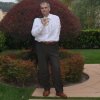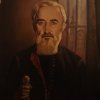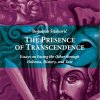linkedin.com/in/lerceg
Luka Erceg is a Canadian-born, American entrepreneur who has focused on sustainable/clean tech ventures. He holds a Juris Doctorate (J.D.), Master of Laws (LL.M.), Master of Business Administration (M.B.A.), and Bachelor of Marketing (B.Com.). He is a Certified Turnaround Professional (C.T.P) through the Turnaround Management Association (T.M.A.), a Certified Insolvency and Restructuring Advisor (C.I.R.A.) through the Association of Insolvency and Restructuring Advisors (A.I.R.A.) and holds the Series 65 license from the North American Securities Administrators Association (NASAA).
On January 11, 2018, Luka suffered a left-shoulder disarticulation (amputation) due to a flesh-eating bacterial infection brought on from the ingestion of bad oysters. Since losing his arm, he has been witnessing discrimination firsthand as he works to re-enter the U.S. economy. Recently, he was recognized globally by the LinkedIn News Team for his post on inclusiveness and bankruptcy in the matter of the Cirque du Soleil bankruptcy, as found on his LinkedIn profile. Previously, Scientific American published his blog article “I lost my arm to microbes but they can save the world”, found here: https://blogs.scientificamerican.com/observations/i-lost-my-arm-to-microbes-but-they-can-save-the-world/, on his tragic experience but the nonetheless ongoing importance of nature and microbiology in addressing global waste problems, and has also written about inclusiveness in the workplace for disabled persons in Ability Magazine, found here: https://abilitymagazine.com/inclusiveness-and-apathy-in-the-workplace/.
Luka has been written about in Forbes, FastCompany, The Economist, Scientific American, and numerous other publications. In addition, he has also testified before the U.S. House of Representatives and U.S. Senate on separate occasions. The first company he founded was almost acquired by Tesla before investors rejected the offer.






